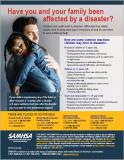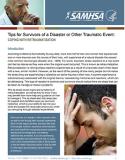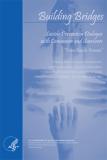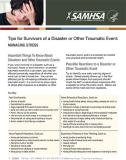
Parents and caregivers may not always understand and be able to identify behaviors in children and youth that are associated with adverse reactions to a disaster. This poster provides information on possible adverse reactions in children as well as where to get help.
Units per Product
Download
Youth and child reactions to a disaster
File Type: PDF
File Size: 703 KB




